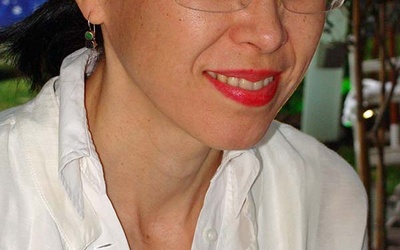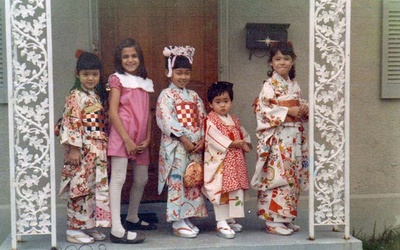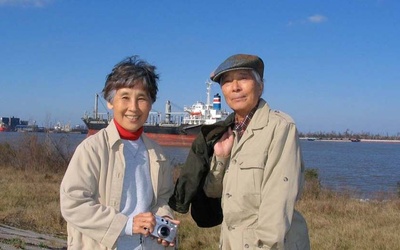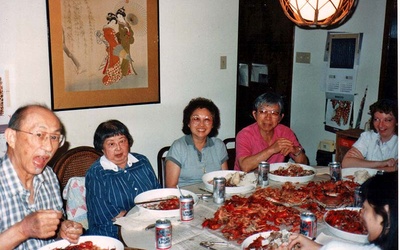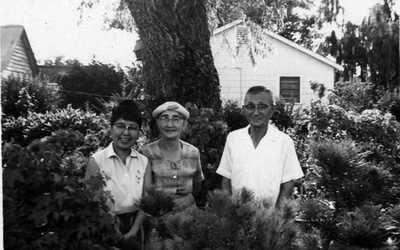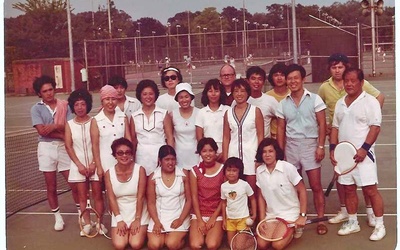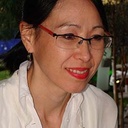
Anna K. Stahl
Anna K. Stahl is the daughter of Mr and Mrs Stahl, a mixed-race couple, half Caucasian and half Japanese. Anna is a fiction writer and a literature/writing professor based in Buenos Aires, Argentina, and writing in the Spanish language. Her fiction and analytical essays often explore cross-cultural experiences; her work is recognized as a new voice for this theme in the Spanish language. She is married to a South American, and they have a young daughter who continues (and indeed expands) the multicultural dynamic.
Updated April 2012
Stories from This Author
Asian American Literature Forum Response by Anna Kazumi Stahl - Part 3
July 15, 2012 • Anna K. Stahl
Read part 2 >> Now, to return to the issue posed in this forum’s prompt: in my case, I must try to find an instance in which both a generational difference and a national-cultural one revealed their criteria and influence. And there was a specific instance, an event I participated in several years ago, in 2004, for the “Japan Theme Day” at the Buenos Aires International Book Fair. I was invited together with an Argentine Nisei, Maximiliano Matayoshi, a talented young …
Asian American Literature Forum Response by Anna Kazumi Stahl - Part 2
July 8, 2012 • Anna K. Stahl
Read part 1 >> To get back to the prompt this forum is based on, I answer that I do see a parallelism between those expansions in an Asian American literature’s aesthetic/stylistic reach and that 1980s Presidential apology to Japanese Americans (although those $20,000 checks remain a bit of a thorn, and most pooled the money for monuments and programs that would keep the memory of those ten internment camps alive for future generations). Those were the kinds of things that …
Asian American Literature Forum Response by Anna Kazumi Stahl - Part 1
July 1, 2012 • Anna K. Stahl
“Are there any continuities,” wonders scholar Min Hyoung Song, “between the earlier generation of writers which first raised the banner of an Asian American literature and a later generation of writers which inherited it?” The Asian American Literary Review asked writers to respond to this question for their Spring 2012 issue on “Generations.” Forum Response by Anna Kazumi Stahl Given that I was born to a mixed race couple (Japanese and German) in the Deep South in 1963, I grew …
The Cajun Nikkei - Part 5 of 5
May 8, 2012 • Midori Yenari , Anna K. Stahl
Read Part 4 >>Stahl Family:The Stahl family was one of the few families in the community that was of mixed race. Mr. Stahl, Earl, was a native of northern Louisiana, from rural areas around Shreveport. He was relatively typical for the region, the grandson of European farming immigrants-in his case from Germany-who had come to the US at the turn of the century in search of better opportunities. The unusual thing about Earl Stahl was that, as a young architecture …
The Cajun Nikkei - Part 4 of 5
May 1, 2012 • Midori Yenari , Anna K. Stahl
Read Part 3 >> Tamai family:Until the 1990s, there was only one Japanese market in the Greater New Orleans area, and that was Oriental Merchandise. It served as an informal social gathering place for the Nikkei of New Orleans. Frank Tamai and George Hirabayashi ran the import/wholesale business originally called Oriental Trading. While the main business was selling Asian goods to retailers, as well as Mardi Gras throws to krewe members, off to one side was a barely noticeable door …
The Cajun Nikkei - Part 3 of 5
April 24, 2012 • Midori Yenari , Anna K. Stahl
Read Part 2 >>Izumi family:Like the Yenaris, the Izumis were interned in Rohwer and were one of the last families to leave camp. Mr. Izumi was in the newspaper business and could not find work after the war had ended. With few options, he moved his family to New Orleans. Eventually, Mr. Izumi met a man named C. D. Hoi, a Chinese businessman who hired him to sell shrimp.1 Although neither spoke the other's language, they communicated by writing everything in …
The Cajun Nikkei - Part 2 of 5
April 17, 2012 • Midori Yenari , Anna K. Stahl
Read Part 1 >>In the oral history tradition, here are some stories from some of the Nikkei’s families in Louisiana:Imahara family:A native of Watsonville, California, Nisei James Imahara was a successful Nikkei farmer who raised strawberries and fruit trees in Sacramento. He married Haruka Sunada, a Kibei Nisei and had nine children. Along with other Japanese Americans, the Imaharas were interned in Arkansas, and Mr. Imahara lost his entire life's efforts. After the War, the Imaharas moved to New Orleans. Although …
The Cajun Nikkei - Part 1 of 5
April 10, 2012 • Midori Yenari , Anna K. Stahl
Japanese and Japanese Americans are certainly a minority in Louisiana, but are nevertheless a viable and tight-knit community. Numbering in the hundreds, families generally lived peacefully next to their non-Japanese neighbors, and joined together during special occasions such as New Year's or Children's Day. Even during difficult times, families would help one another both financially and emotionally. In contrast to the Nikkei of the West Coast, they rarely encountered discrimination even during the post-War years when they tried to piece …


